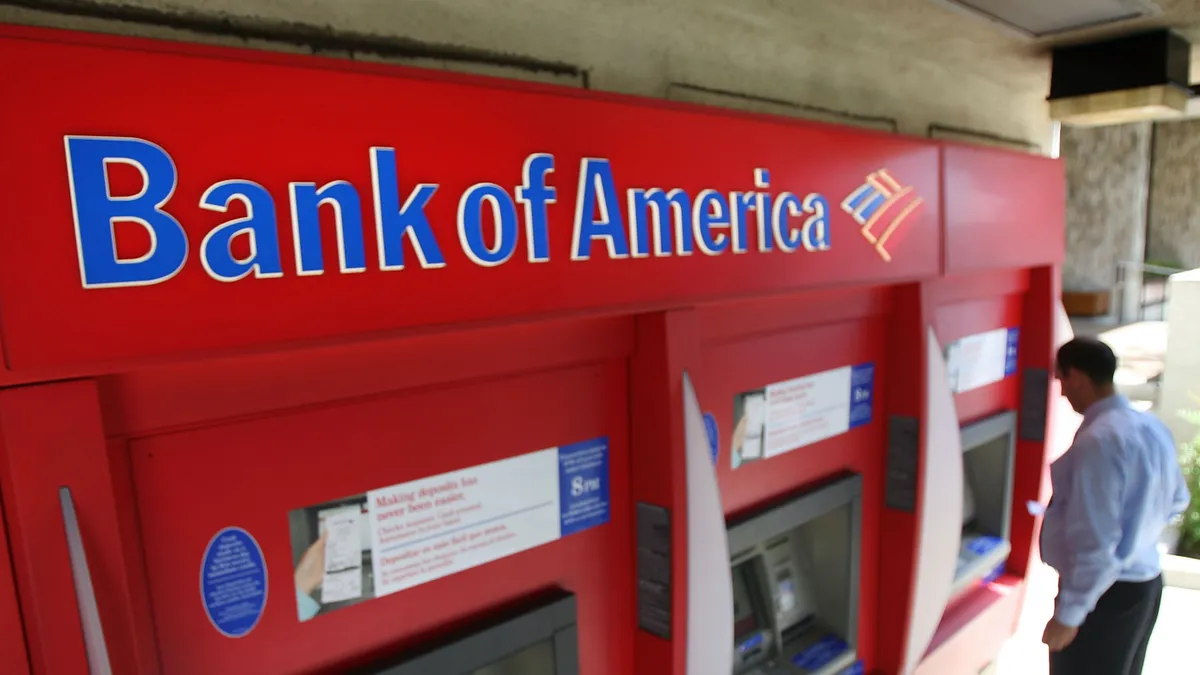Bank of America and BMO Harris are leaning into real estate aid with programs designed to close the racial property ownership gap.
Bank of America launched two programs Tuesday — one to aid small-business owners and another aimed at future homeowners.
The Small Business Down Payment Grant Program extends credit to small-business borrowers within historically disadvantaged communities and offers them financial support to purchase commercial real estate. Women and nonwhite business owners applying for Small Business Administration (SBA) commercial real estate loans for opportunity zones in Atlanta, Chicago, Charlotte, Dallas and Los Angeles can access the grants, which can be used to cover up to half of the down payment, capped at $25,000.
The bank plans to expand the program geographically next year.
"Today, many business owners of diverse backgrounds lack the access to capital and technical assistance needed to qualify for commercial loans, which can help secure transferable assets that build equity across generations," said Jill Calabrese Bain, managing director of small business, specialty banking and lending at Bank of America.
Just 3% of Black households own nonresidential commercial real estate, Brookings reported in July. That compares with 8% of White households. Further, for the households that do, there’s a major disparity in the value: The average Black household owns $3,600 in it; the average White household, $34,000.
Applicants for the program announced Tuesday must pay at least 5% of the down payment and must be able to prove at least 51% business ownership by women or nonwhite people.
Bank of America’s Community Affordable Loan Solution, meanwhile, offers a zero-down payment, zero-closing-cost mortgage solution to first-time buyers purchasing homes in certain Black and Latinx neighborhoods in Charlotte, Dallas, Detroit, Los Angeles and Miami.
The program uses credit guidelines based on factors such as timely rent, phone and car insurance payments. Prospective buyers needn’t have mortgage insurance or a minimum credit score but must complete a homebuyer certification course through a Bank of America and Housing and Urban Development Department-approved housing counseling partner before submitting an application.
The program builds onto Bank of America’s $15 billion community homeownership commitment, which launched in 2019 and aims to provide affordable mortgages, grants and education to help some 60,000 low-to-moderate income individuals and families buy their own homes by 2025.
The National Association of Realtors in February reported a nearly 29-percentage-point gap in homeownership between White and Black Americans. That gap stands at 21 percentage points between White and Hispanic Americans.
"Homeownership strengthens our communities and can help individuals and families to build wealth over time," said AJ Barkley, head of neighborhood and community lending for Bank of America. "Our Community Affordable Loan Solution will help make the dream of sustained homeownership attainable for more Black and Hispanic families, and it is part of our broader commitment to the communities that we serve."
The launch of Bank of America’s programs coincides with the extension of BMO Financial Group’s Welcome Home Grant down payment program in Chicago and Phoenix. That program, which has provided grants since March that eligible homeowners can use toward down payment and closing costs, aims to help underserved communities access credit necessary for homeownership.
The bank extended the program through Oct. 31, and applicants in Chicago and Phoenix are eligible for up to $20,000. Eligible homebuyers must contribute a minimum of $1,000 to lock in a 30-year fixed-rate mortgage.
"The extension of this program provides resources that are critical in helping revitalize underserved neighborhoods, helping the communities we serve make real financial progress,” said Bernard Narine, regional president of Chicago South and Arizona at BMO. The grant “embodies our commitment to a thriving economy, sustainable future and inclusive society throughout the communities we serve," he said.
These programs stand in contrast to persistent gaps in mortgage application acceptance along racial lines that have historically plagued the industry. Wells Fargo is in hot water, with a lawsuit from Aaron Braxton, a Black man from California, who alleges that the bank’s lending algorithms disproportionately deny refinancing for Black applicants.
Bloomberg reported this year that the bank denied more than half of all refinancing applications submitted by Black people in 2020. A representative for Wells Fargo told The New York Times in March that it “helped more Black homeowners refinance their mortgage than any other large bank” in 2020 and didn’t comment on Braxton’s lawsuit.






















